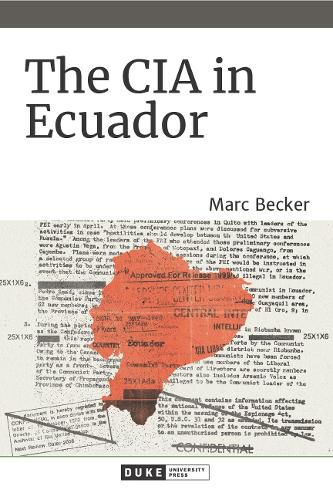Readings Newsletter
Become a Readings Member to make your shopping experience even easier.
Sign in or sign up for free!
You’re not far away from qualifying for FREE standard shipping within Australia
You’ve qualified for FREE standard shipping within Australia
The cart is loading…






In The CIA in Ecuador Marc Becker draws on recently released US government surveillance documents on the Ecuadorian left to chart social movement organizing efforts during the 1950s. Emphasizing the competing roles of the domestic ruling class and grassroots social movements, Becker details the struggles and difficulties that activists, organizers, and political parties confronted. He shows how leftist groups, including the Communist Party of Ecuador, navigated disagreements over tactics and ideology, and how these influenced shifting strategies in support of rural Indigenous communities and urban labor movements. He outlines the CIA’s failure to understand that the Ecuadorian left was rooted in local social struggles rather than bankrolled by the Soviet Union. By decentering US-Soviet power struggles, Becker shows that the local patterns and dynamics that shaped the development of the Ecuadorian left could be found throughout Latin America during the cold war.
$9.00 standard shipping within Australia
FREE standard shipping within Australia for orders over $100.00
Express & International shipping calculated at checkout
In The CIA in Ecuador Marc Becker draws on recently released US government surveillance documents on the Ecuadorian left to chart social movement organizing efforts during the 1950s. Emphasizing the competing roles of the domestic ruling class and grassroots social movements, Becker details the struggles and difficulties that activists, organizers, and political parties confronted. He shows how leftist groups, including the Communist Party of Ecuador, navigated disagreements over tactics and ideology, and how these influenced shifting strategies in support of rural Indigenous communities and urban labor movements. He outlines the CIA’s failure to understand that the Ecuadorian left was rooted in local social struggles rather than bankrolled by the Soviet Union. By decentering US-Soviet power struggles, Becker shows that the local patterns and dynamics that shaped the development of the Ecuadorian left could be found throughout Latin America during the cold war.